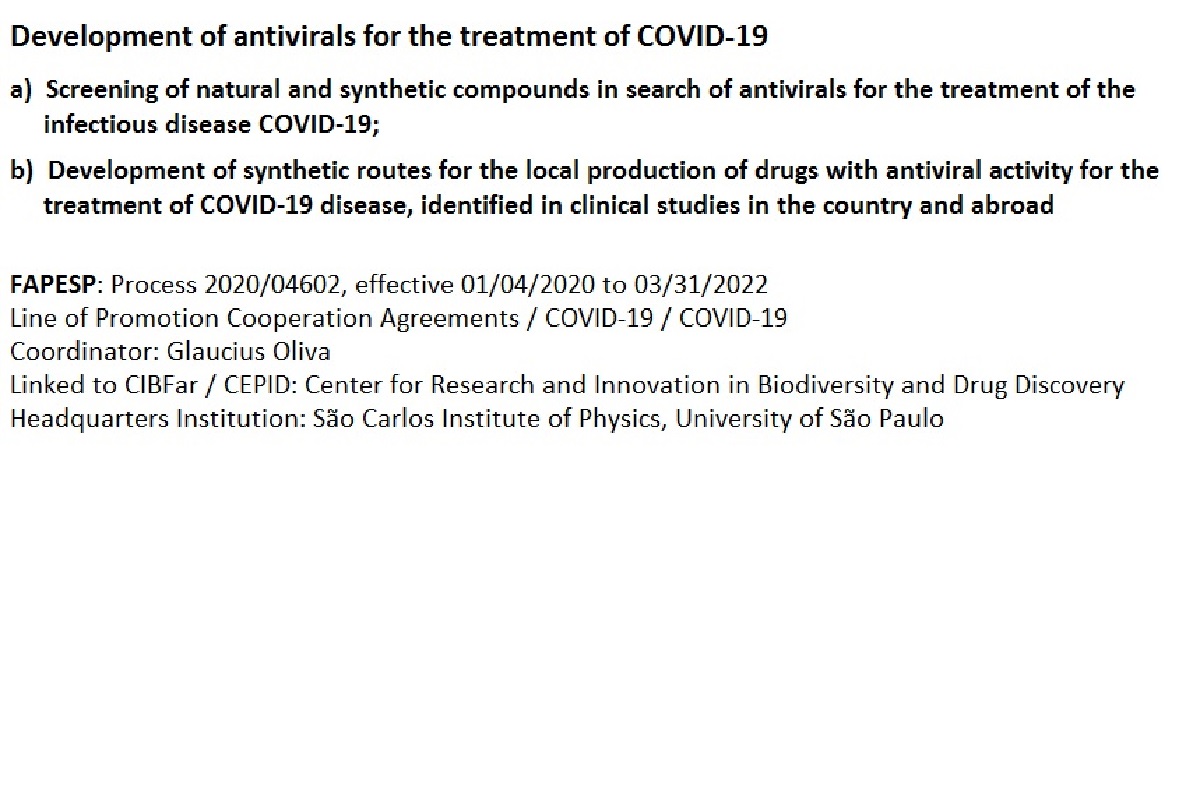Since the end of February, when the Corona virus (SARS-Cov-2) that causes COVID-19 disease started to leave China and spread around the world, it was considered a pandemic (an infectious disease that affects various regions of the planet) with exponential (very rapid) growth of cases in Brazil and worldwide, CIBFar researchers have mobilized to include this virus in their research projects. After the publication of the SARS-Cov-2 genome sequencing, CIBFar researchers (which brings together scientists from IFSC, FCFRP-USP, IQ-UNICAMP, IQ-UNESP-Araraquara and DQ-UFSCar) cloned genes that express important proteins of the virus (process of obtaining viral proteins in the laboratory) to study their structures and research medicines that can bind to these proteins, killing the virus. Recently (04/30), these scientists joined colleagues from other Brazilian Institutions (ICB, IQSC-USP, ICAQF-UNIFESP, DG-UFSCar) and abroad (MMV, DNDi – Geneva), in this struggle to find drugs to spread infection or even to find virus proteins that can be used as a vaccine. An effective vaccine would be desirable, but any development should require one to two years to be approved, so there is no expectation that it can be used even during this global pandemic. Thus, in addition to the guidelines we are receiving from WHO, the Ministry of Health, State and Municipal Health Secretaries, a worldwide effort by scientists is needed to find some medicine that has antiviral activity against the Corona virus SARS-Cov-2 to assist in the treatment infected patients. In this project, scientists will establish and standardize experiments with synthetic chemical compounds and isolated from natural products, using human cells and the Corona virus SARS-Cov-2, isolated from Brazilian patients and grown under conditions of high biological safety at ICB-USP. The forecast is that in this test it will be possible to evaluate up to 4,000 compounds, being able to expand this study according to the availability of compounds and financial resources for the tests. Collections of chemical compounds approved by the FDA (USA), all collections of natural and synthetic molecules from CIBFar, from the PITE-FAPESP / MMV / DNDi / UNICAMP Consortium, from NEQUIMED / IQSC / USP, fluorescent peptide probes and protease inhibitors produced in EPM / UNIFESP, can be used in the tests and can reach up to 150,000 compounds to be tested. All relevant SARS-Cov-2 proteins as potential targets for the action of antiviral drugs will be cloned and produced in the laboratory (in a form called recombinant protein made in the E.coli bacterium), and biochemical and biophysical assays will be developed to identify the compounds that can inhibit (for example blocking the action of virus proteins) and ligands (compounds that stick to virus proteins and do not let them perform their activities). In parallel, some scientists in this group will be developing simpler routes for chemical synthesis and alternatives for drugs already approved for use in humans and which are being identified as potentially effective in the treatment of COVID-19.
06
Apr

Date April 6, 2020
Categories News




